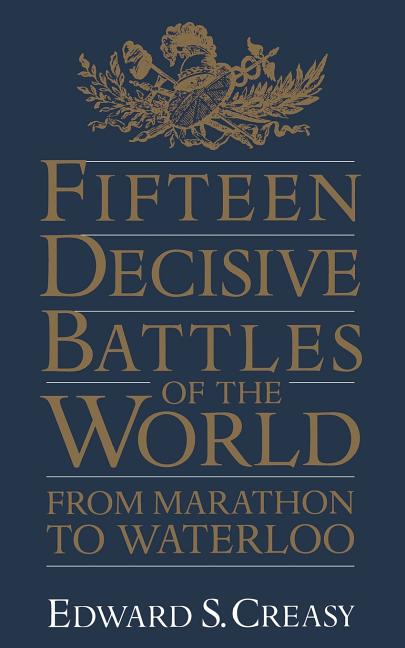Description
Apart from the scholarship and literary skill of Creasy's book, there is another reason it has endured: Creasy was essentially fair-minded. He had been a judge, and when he became England's great military critic and historian, he maintained a thoroughly judicial attitude. He was not a British partisan, nor French, nor German--he was a cosmopolitan observer of great events.
Out of 2300 years, Creasy only found fifteen battles which he called decisive in the highest sense. He chose them not for the number of killed and wounded, nor for their status in myth and lore, but because they fundamentally changed the course of world history. In doing so, he made his book a miniature military history of the western world, a classic that will repay continued study for generations to come, as it has for generations.
Product Details
- Grand Central Publishing Brand
- Mar 22, 1994 Pub Date:
- 0306805596 ISBN-10:
- 9780306805592 ISBN-13:
- English Language
- 424.0 pages Paperback
- 8 in * 0.96 in * 5 in Dimensions:
- 1 lb Weight:




